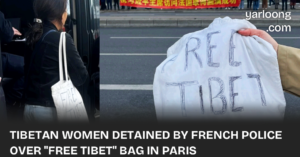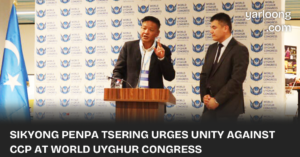
In a significant development, China‘s People’s Liberation Army (PLA) has increased its recruitment efforts in Tibet, mandating that each Tibetan family send one member to the military. This move comes amid escalating tensions with India along the Line of Actual Control (LAC).
China’s Military Strategy in Tibet
According to a recent report by the Eurasian Times, China has integrated rigorous loyalty tests for Tibetan recruits, which include mastering the Mandarin language and acknowledging the supremacy of the Chinese Communist Party (CCP). This strategy is aimed at suppressing any resistance within the region and bolstering the military’s capabilities along the disputed border.
Kelsang Pedron, a native of Lhokha city in the Xinjiang region, has made history as the first Tibetan woman to pilot a fighter jet in the Chinese Air Force. Her achievement marks a significant milestone in the inclusion of Tibetans in high-profile military roles. “Becoming an Air Force aviator is glorious, and I wanted to try so that I could safeguard the motherland’s blue skies,” Pedron stated, as quoted by the Eurasian Times.
Tensions at the Line of Actual Control
The recruitment drive is partly a response to the increased hostilities at the LAC, where conditions are notoriously harsh. The PLA has been particularly interested in Tibetans due to their natural acclimatization to the extreme climate, a trait that gives them a tactical advantage over regular troops. The Eurasian Times reports that exercises and training specifically for operations along the LAC are regularly conducted.
Special Focus on Language Skills
The PLA is also seeking Hindi-speaking Tibetans and Nepalis to assist with interpretation and intelligence gathering. This effort underscores the strategic emphasis on linguistic skills to improve operations along the border areas, which include Indian states like Sikkim, Arunachal Pradesh, and Uttarakhand.
Comparison with India’s Special Frontier Force
In response to the PLA’s actions, India has its own specialized unit, the Special Frontier Force (SFF), comprised primarily of Tibetan exiles. This force played a crucial role during the 2020 clashes with Chinese troops in Ladakh. The SFF, established after the 1962 Sino-Indian War, has been active in several conflicts and is directly supervised by India‘s prime intelligence agencies.
Despite the ongoing recruitment and military bolstering, both China and India have engaged in multiple rounds of talks to resolve their disputes. However, these discussions have yet to yield a significant breakthrough.






